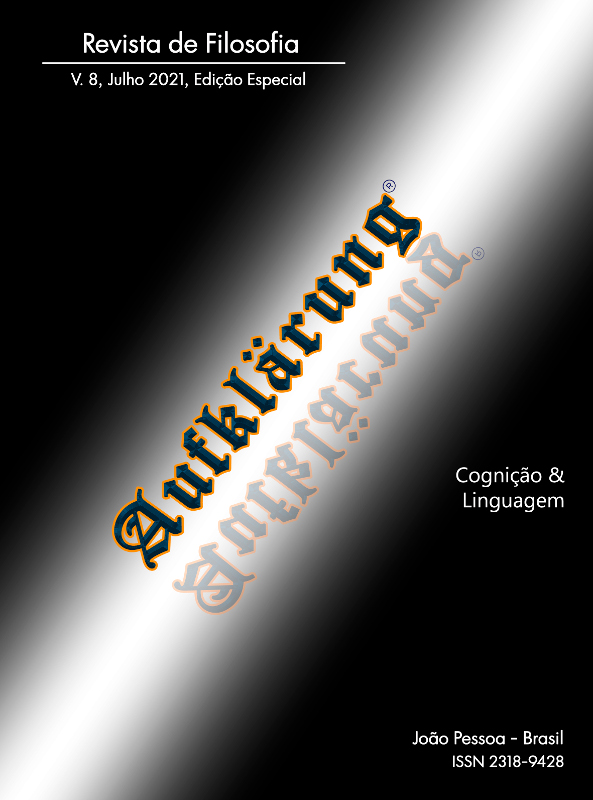Descriptive Reference Fixing and Epistemic Privileges
DOI:
https://doi.org/10.18012/arf.v8iesp.60025Palavras-chave:
Kripke, Donnellan, Jeshion, contingent a priori truthsResumo
Donnellan (1977) argues for a radical limitation of Kripke’s (1980) thesis concerning the possibility of contingent truths knowable a priori as a result of descriptive reference fixing for names. According to the former, in the absence of some form of acquaintance between the speaker and the object of knowledge, there can be no de re singular knowledge (or even belief) envisaged by Kripke. And in the presence of acquaintance (which typically takes the form of perceptual contact), there can be no a priori knowledge. On the other hand, Jeshion (2001) argues that Donnellan’s main argument is fundamentally flawed. She explores a loophole intentionally (and explicitly) left open by Donnellan to say that he has not ruled out an alternative explanation for the problem that motivates the revision of Kripke’s thesis. In this paper, I access Jeshion’s argument against Donnellan. As I intend to show, she does not fully appreciate a second loophole in Donnellan’s account that offers a more appropriate way of seeing Kripke’s examples.
Downloads
Referências
DONNELLAN, K. S. The contingent a priori and rigid designators. Midwest Studies in Philosophy, 2(1):12–27, 1977.
DUMMETT, M. Frege: Philosophy of Language. Harvard University Press. 1973.
EVANS, G. Reference and contingency. The Monist, 62(2):161–189, 1979.
JESHION, R. Donnellan on Neptune. Philosophy and Phenomenological Research, 63(1):111–135, 2001.
JESHION, R. . Acquaintanceless de re belief. In CAMPBELL, J., O’ROURKE, M., AND SHIER, D. (Org.). Meaning and Truth. Investigations in Philosophical Semantics, Oxford University Press, 2002. p. 53–78.
KRIPKE, S. Naming and Necessity. Harvard University Press, 1980.
RUFFINO, M. Contingent a priori truths and performatives. Synthese, pages 1–21, 2020.
SALMON, N. Frege’s Puzzle. Ridgeview Publishing Company, 1986.
SEARLE, J. A taxonomy of illocutionary acts. In SEARLE, J. (Org.). Expression and meaning: Studies in the theory of speech acts: Cambridge University Press, 1979. p. 1–29.
SEARLE, J. and Vanderveken, D. Foundations of illocutionary logic: Cambridge University Press, 1985.
SOAMES, S. Philosophical Analysis in the Twentieth Century. Volume I, The Dawn of Analysis: Princeton University Press. 2003.
Arquivos adicionais
Publicado
Como Citar
Edição
Seção
Licença

Este trabalho está licenciado sob uma licença Creative Commons Attribution 4.0 International License.
Política de Direito Autoral para os itens publicados pela Revista:
1.Esta revista é regida por uma Licença da Creative Commons aplicada a revistas eletrônicas. Esta licença pode ser lida no link a seguir: Creative Commons Attribution 4.0 International (CC BY 4.0).
2.Consonante a essa politica, a revista declara que os autores são os detentores do copyright de seus artigos sem restrição, e podem depositar o pós-print de seus artigos em qualquer repositório ou site.
Política de Direito de Uso dos Metadados para informações contidas nos itens do repositório
1. Qualquer pessoa e/ou empresa pode acessar os metadados dos itens publicados gratuitamente e a qulquer tempo.
2.Os metadados podem ser usados sem licença prévia em qualquer meio, mesmo comercialmente, desde que seja oferecido um link para o OAI Identifier ou para o artigo que ele desceve, sob os termos da licença CC BY aplicada à revista.
Os autores que têm seus trabalhos publicados concordam que com todas as declarações e normas da Revista e assumem inteira responsabilidade pelas informações prestadas e ideias veiculadas em seus artigos, em conformidade com a Política de Boas Práticas da Revista.






































